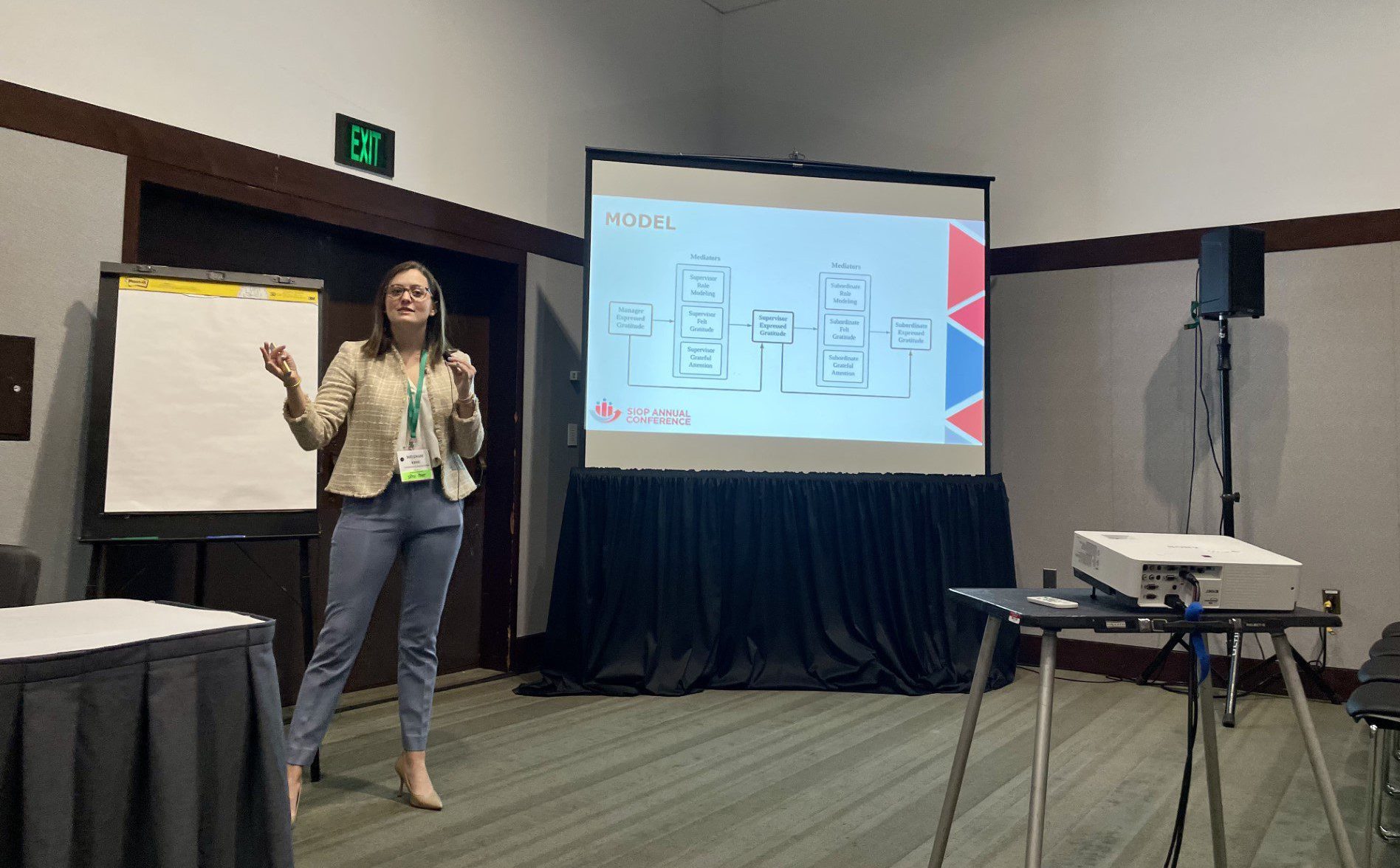Organizational Citizenship Behavior (OCB)
Reactions to Help. We are interested in understanding how different factors influence the way in which an individual reacts to receiving help, as well as how it influences their subsequent behaviors.
Norms for Helping in Teams. Our work addresses how norms for helping develop in teams and the influence those norms have on team outcomes.
Gender and OCB. Our research investigates the role that gender may play in expectations, performance, and evaluations of engagement in OCB.
Gratitude and Helping. We study the relationship between help received and gratitude, differences between felt gratitude and expressed gratitude and between gratitude and indebtedness, and group norms for gratitude.
Stress and Helping. We are interested in examining when helping others might be stressful, including what personality and situational factors contribute to negative reactions to helping others.
Implementation Citizenship Behavior. We study the specific behaviors employees perform that go above and beyond their required job in order to support evidence-based practice implementation.
Leadership
Ambivalent Leadership. We seek to understand the ambivalent relationships that can develop between leaders and followers as a result of both positive and negative interactions in the workplace.
Leader Emergence. We study both personal and situational factors that contribute to leader emergence in groups.
Follower Perceptions of Leadership. We examine a variety of issues that contribute to why followers prefer and/or respond more positively to certain leaders, as well as how followers influence the leadership process.
Implementation Leadership. We study the specific behaviors leaders can perform to effectively lead implementation efforts, including developing interventions and training leaders on those behaviors.
LMX Differentiation. Our research addresses variability in the quality of leader-follower relationships within a group, as well as different patterns of that variability and the implications of those patterns.
Organizational Climate
Implementation Climate. In medical and behavioral health settings, we investigate the role of the organizational context in supporting evidence-based practice implementation efforts.
Stress Management Climate. We address the implications of organizations’ emphasizing stress management with employees through their policies, practices, and procedures.
Service Climate. Our research addresses the antecedents and outcomes of service climate, the role of climate strength, and the implications of a service climate for individual workers.
Multiple Climates. We study how multiple organizational climates simultaneous influence unit and individual level outcomes.
Additional Topics
Resilience. We seek to understand the role of trait resilience in buffering the antecedents and outcomes of stress perceptions, as well as the role of team resilience in team performance.
Authenticity at Work. We investigate the factors that contribute to individuals’ willingness to be authentic at work, as well as possible positive repercussions of the imposter syndrome.

Recent Comments